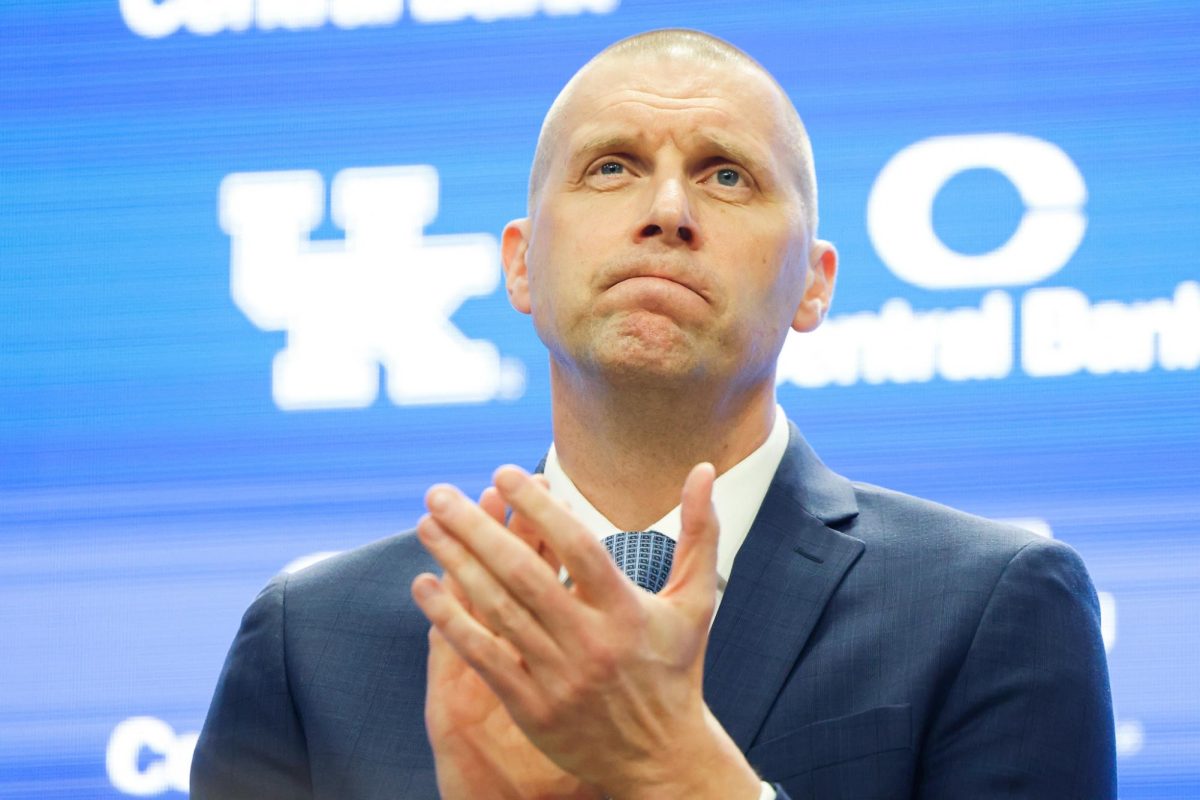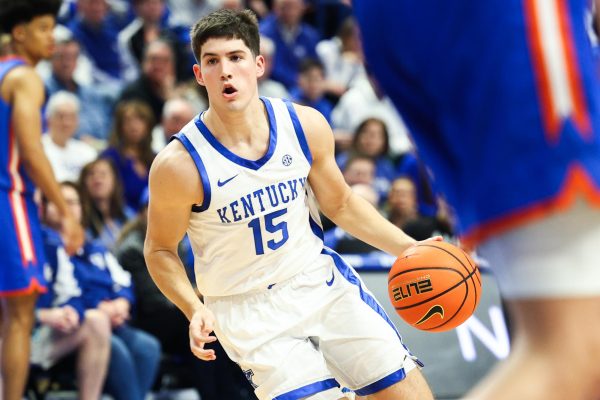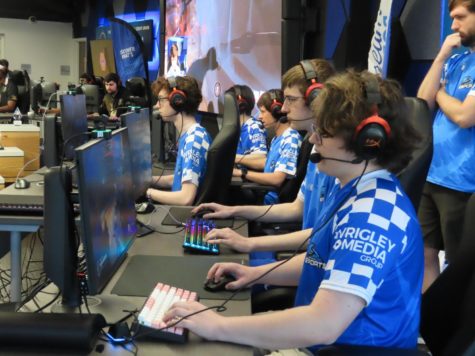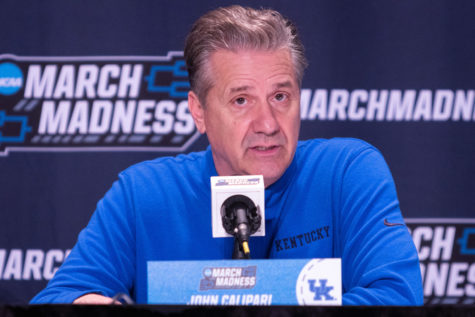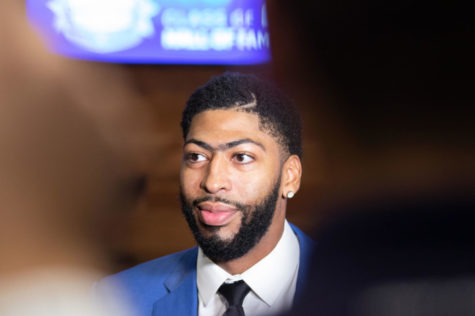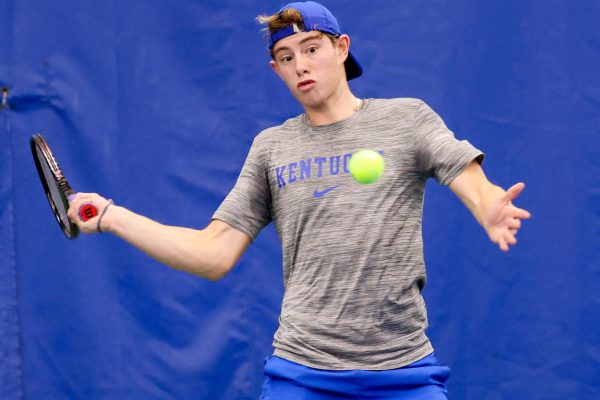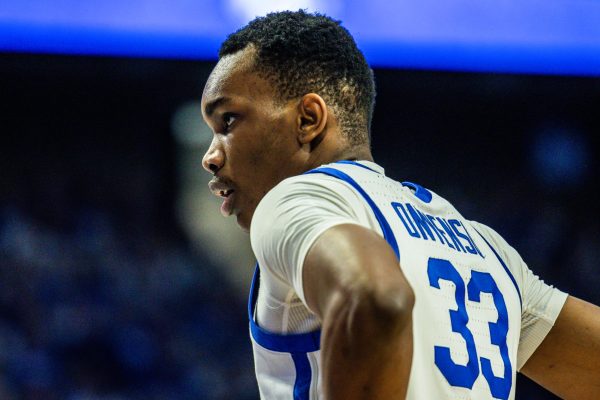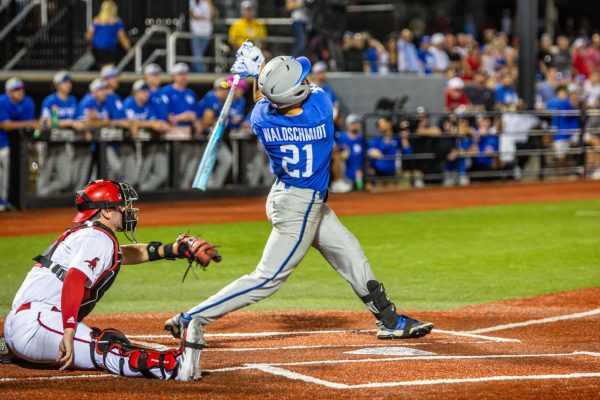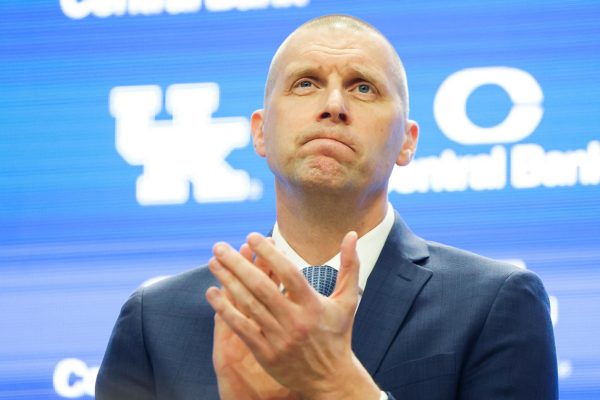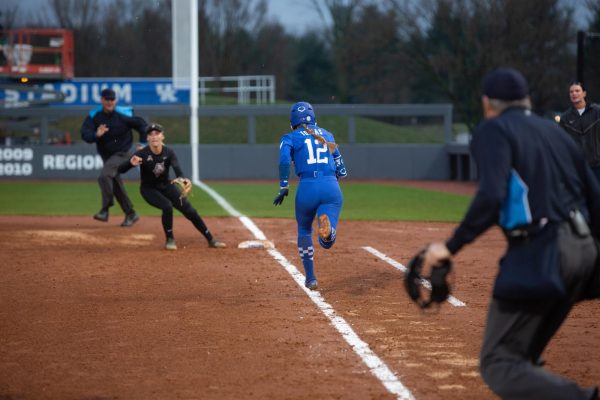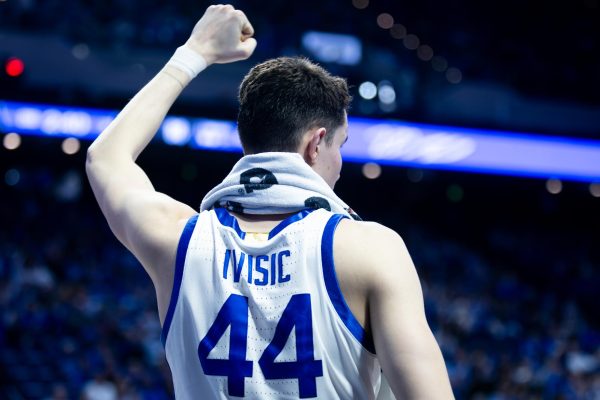Name, Face, Likeness, Talents: What if UK student-athletes could profit off their image?
February 1, 2020
Makayla Epps is used to being recognized. It started when she was young and hanging out with her dad, Anthony Epps, a former UK basketball player from the mid-1990s.
At the time, she didn’t know that one day she’d find herself in the same position. But when she became a UK basketball player herself, her face became a familiar one around Lexington and even the rest of the state.
“When I was at UK, I remember going to the mall,” Epps said, while laughing. “Anybody with a blue hat on, they’re coming up to you. Being out to eat, they’re coming up to you in the middle of your meal. ‘Oh my gosh, can I take a picture, can I have an autograph?’”
For Epps, who finished her time at Kentucky on the program’s top-10 lists for career points, assists, assists average, field-goals made, free-throws made and scoring average, that fan interaction didn’t stop after graduation.
“Even now – and I’m working at footlocker – they’ll come in and give me, like, dirty looks. Figure it out, figure it out. And I’m like: ‘whoever you think I am, that’s exactly who I am.’”
Sydney Prince might not get recognized inside the mall, but you can often find her near a basketball court. The University of Kentucky senior serves as one of the captains for UK’s dance team, where she’s all too familiar with the “daily grind” of student-athlete life.
When asked about her typical day, she regurgitates a schedule that would make even the most organized, in-shape and efficient person exhausted. It begins before the sun rises—the dance team practices several times per week at 5:30 a.m.
She said she balances these practices with other dance-team obligations, including football and basketball games, as well as the choreography and “tricks” she’s expected to practice on her own time. By the time you add in her work at an animal clinic (she’s pursuing a career as a veterinarian) and her part-time job teaching hip-hop classes to middle-school students at Diana Evans’ School of Dance, her day already sounds full. That’s before you allow time for things like eating, sleeping and her actual school work—the reason she came to Kentucky in the first place.
Prince said she doesn’t mind the schedule.
“I’ve always thrived in a hectic environment,” she said after running through her responsibilities with the UK dance team andher dancers at Diana Evans.
Her dance class, which she leads every Monday evening, pays her $10 an hour.
“I do this job not for the money,” Prince said. “I do this to kind of keep me in my traditional dance roots.”
Of course, it helps that she has also has other sources of income. Prince recalled a time when she recently earned $300 for choreographing a routine for a local middle school dance team. There’s no hard-and-fast rule for how much a choreographer can bring home, but she cites examples ranging from $100 to $1,000.
Josh Loredo gives the same price range when asked about his earned income. He legally can’t disclose the exact amount because of his agreement with “Twitch,” the world’s leading live-streaming platform for professional video gamers, but he says his income lies somewhere between the numbers $100 and $1,000.
With an online, competition-based platform like Twitch, gamers can make money off of their subscribers or advertisers. Loredo said he’s “not a popular streamer, by any means,” but he is good enough to turn a profit, and he currently serves as the Vice President of UK’s Esports Club.
The club’s most-recent meeting, which occurred in mid-December 2019, had over two dozen students in attendance, Loredo said.
In May 2019, the NCAA voted against governing collegiate Esports and, according to Loredo, they “kind-of dodged a bullet.” There are simply too many well-established professionals in his line of work and it would be a nightmare for the NCAA to sort through eligibility requirements and amateur statuses.
“There’s sort-of been this odd issue of like: Why does the NCAA hate it when students make money off of their talents?” Loredo said.
The NCAA’s loss, in this case, is Loredo’s gain, he said. If Esports weregoverned by the NCAA, he wouldn’t be able to profit off of his name, face, likeness or talents related to the sport. But because the NCAA decided to pass on collegiate video gaming – at least, for now – Loredo and hundreds of other student-gamers like him don’t have to worry about making money off of their talents while also staying in college.
Prince doesn’t have that problem either.
“We don’t have as many restrictions as ‘actual’ athletes – we’re considered more ‘spirit,’” she said of UK’s dance team. “If we were to have those restrictions and we were told you can’t go and teach dance, that would take away a lot of the income from a lot of these girls.”
Epps, on the other hand, earned zero dollars off of those same qualities – her name, face, likeness and talents – while she was enrolled at UK. Since the women’s basketball team is a varsity sport governed by the NCAA, Epps and her teammates were ineligible to turn a profit.
“For somebody like me, it was always on my mind. We’re doing all of this for free; they’re getting everything out of me. At the end of the day, I am getting my college tuition and this, this and that – room and board – paid for, which is all great,” she said. “[But] there’s still that part of me as Makayla Epps the basketball player that’s like, dang, we could really do something if I could compensate off this.”
That’s something that is changing. The state of California passed a bill in September of 2019 allowing student athletes in the state to control their own image and likeness. At the time, the NCAA had not approved a similar rule, but state law trumps “non-profit” organizational regulations every day of the week. Eventually, the NCAA caught up to the west coast; the national organization is set to have new rules in place that match the California Bill by January 2021.
When Epps first heard the news, she says she felt sick.
“Sick for myself and people like myself in the past. There have just been so many common, household names that didn’t get that opportunity,” Epps said.
She originally took to Twitter to air out her thoughts, writing “If I could’ve gotten paid based off my name, [image], likeness & etc. in college…… MAN LET ME TELL YOU”
What if the rule had been in place before 2013, when Epps first stepped onto UK’s campus? Would her life be any different?
She looks around the local recreational center, where she now serves as the head coach for the Woodford County girls’ JV basketball team, and she looks at the middle and high-school aged girls on the floor. She mentions how excited she is for them, and the factthat they will have the chance to change their own lives.
Yes, but what about you?
“No. I might have been a little more wealthy,” she laughs, even though it’s clear she’s not really joking. “But overall – my overall life and everything I do on the daily – that would probably be the same, given my circumstances.”
Still, she knows she could have made money, if she’d had the chance.
“Whew. Yeah, I think I could have made some money. Definitely.”


















































